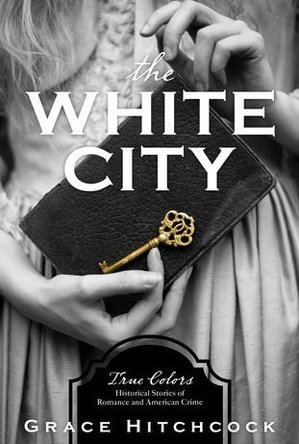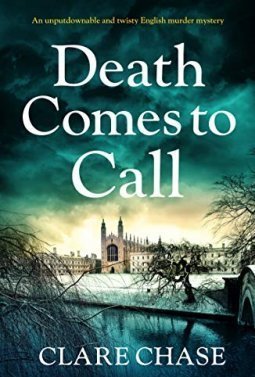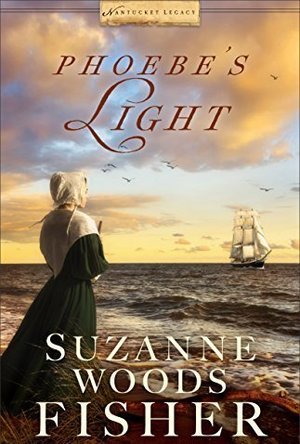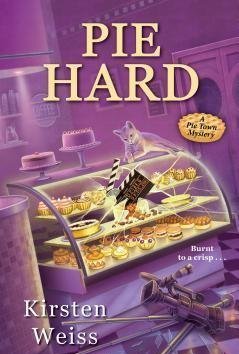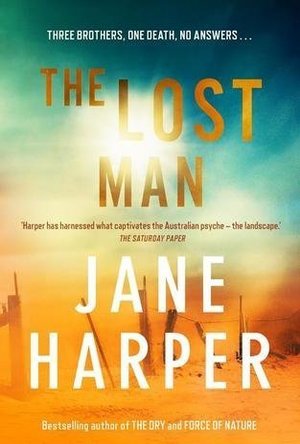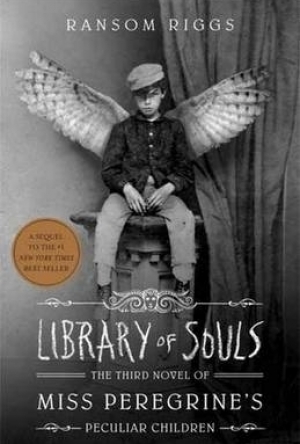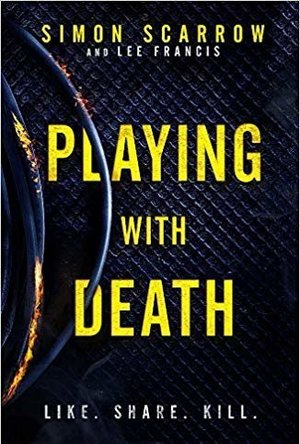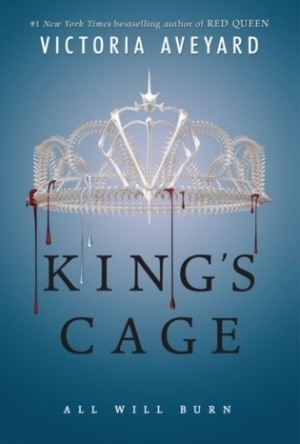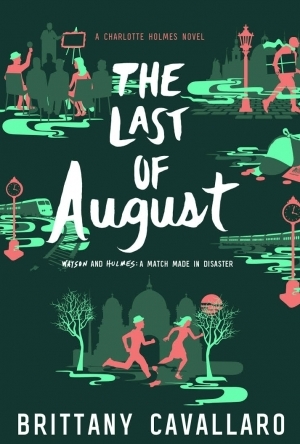Search
Search results
Molly J (Cover To Cover Cafe) (106 KP) rated The Road to Paradise (Vintage National Parks, #1) in Books
Feb 27, 2019
<p style="text-align: center;"><span style="color: #993300;"><strong>My Thoughts</strong></span>
<span style="color: #993300;"><strong>I loved this book and everything about it. It was wonderfully written, with characters that are real-to-life, a setting that will sweep you away to the Mount Ranier National Park and a plot that will leave you dying for more of this talented authors work. It was such a fabulous feeling reading this book. </strong></span>
<p style="text-align: center;"><span style="color: #993300;"><strong>This novel is a mix of historical and beautiful scenes. I felt as though I was right there with Margie and the Rangers, looking at the parks in front of them. I loved feeling as though the author was writing the story just for me, and gripped me wholly with her wonderful characters, words and messages. These characters, both good and bad, quickly steal your heart and don't let go until the end! Each page turn brings you further to the heart of Mt. Ranier taking you along for the ride of protecting the park. </strong></span>
<p style="text-align: center;"><span style="color: #993300;"><strong>This is the first book in Ms. Barnett's new series and I definitely recommend it with high flying 5 stars! Ms. Barnett is a wonderful author and this book just became one of my top 10 reads for 2017! If you are looking for a book that is chiseled fantabulously, filled with hope and twists, and characters that you want to make your friends, then look no further than this start of The Vintage National Parks novels. I absolutely can not wait to get my book loving hands on book 2! Well done, Ms. Barnett! </strong></span><a href="http://cafinatedreads.com/blogging-for-book-review-the-road-to-paradise-by-karen-barnett/"; target="_blank">This review was originally posted on Cafinated Reads</a>
<span style="color: #993300;"><strong>I loved this book and everything about it. It was wonderfully written, with characters that are real-to-life, a setting that will sweep you away to the Mount Ranier National Park and a plot that will leave you dying for more of this talented authors work. It was such a fabulous feeling reading this book. </strong></span>
<p style="text-align: center;"><span style="color: #993300;"><strong>This novel is a mix of historical and beautiful scenes. I felt as though I was right there with Margie and the Rangers, looking at the parks in front of them. I loved feeling as though the author was writing the story just for me, and gripped me wholly with her wonderful characters, words and messages. These characters, both good and bad, quickly steal your heart and don't let go until the end! Each page turn brings you further to the heart of Mt. Ranier taking you along for the ride of protecting the park. </strong></span>
<p style="text-align: center;"><span style="color: #993300;"><strong>This is the first book in Ms. Barnett's new series and I definitely recommend it with high flying 5 stars! Ms. Barnett is a wonderful author and this book just became one of my top 10 reads for 2017! If you are looking for a book that is chiseled fantabulously, filled with hope and twists, and characters that you want to make your friends, then look no further than this start of The Vintage National Parks novels. I absolutely can not wait to get my book loving hands on book 2! Well done, Ms. Barnett! </strong></span><a href="http://cafinatedreads.com/blogging-for-book-review-the-road-to-paradise-by-karen-barnett/"; target="_blank">This review was originally posted on Cafinated Reads</a>
Molly J (Cover To Cover Cafe) (106 KP) rated The White City in Books
Mar 1, 2019
The Characters (3 more)
The Plot Line
True Crime Elements
Writing Style
Fantastic Debut!
I am a lover of true crime, historical fiction, suspense and romance. I mean a huge lover of all of them. So, when I saw that this was the best of all of those worlds, I was ecstatic. This is a debut novel from Grace Hitchcock and let me tell you what. The detail she includes in this story, made me feel like I was right there in the center of the World’s Fair, following these awesome characters, and reaching an ending that left me wanting another story just like it.
Winnie and Jude’s characters are wonderful! I loved them so good. The detail with which Hitchcock created the scenes that Winnie saw, and went through, and how Jude fell for her, was awesome. I felt like I became Winnie and fell for Jude instantly. Jude was a sweet soul and Winnie was absolutely full of spunk and sass!
The real life serial killer aspect woven into the story was incredible. I had no idea about that time period having someone like that, and it really made the story that much more captivating. The twists and turns of the roller coaster story, seeing Winnie going “undercover” to prove to her Police Chief father that she was right, was fantastic and had me reading this book and finishing it in a 24 hour period.
If you love historical novels, love the thrills of a great suspense story, and enjoy reading a God-filled romance book, then look no further than this 4 star debut. Ms. Hitchcock has extreme talent and is sure to be on the best sellers list before long! I sing the praises of this story loudly and can’t wait for the next book from this talented author, as well as another incredible installment in this new series from Barbour!
*I received a complimentary copy of this book from Barbour Publishing and was under no obligation to post a review, positive or negative.*
Winnie and Jude’s characters are wonderful! I loved them so good. The detail with which Hitchcock created the scenes that Winnie saw, and went through, and how Jude fell for her, was awesome. I felt like I became Winnie and fell for Jude instantly. Jude was a sweet soul and Winnie was absolutely full of spunk and sass!
The real life serial killer aspect woven into the story was incredible. I had no idea about that time period having someone like that, and it really made the story that much more captivating. The twists and turns of the roller coaster story, seeing Winnie going “undercover” to prove to her Police Chief father that she was right, was fantastic and had me reading this book and finishing it in a 24 hour period.
If you love historical novels, love the thrills of a great suspense story, and enjoy reading a God-filled romance book, then look no further than this 4 star debut. Ms. Hitchcock has extreme talent and is sure to be on the best sellers list before long! I sing the praises of this story loudly and can’t wait for the next book from this talented author, as well as another incredible installment in this new series from Barbour!
*I received a complimentary copy of this book from Barbour Publishing and was under no obligation to post a review, positive or negative.*
Midge (525 KP) rated Death Comes to Call (A Tara Thorpe Mystery Book 3) in Books
Mar 2, 2019
A Fantastic Mystery/Thriller!
I'm a great fan of mysteries and thrillers so, when I saw “Death Comes To Call” featuring DC Tara Thorpe being launched, I knew I had to read it. This is actually the third book in the Tara Thorpe Mystery Series. Although I haven’t come across the other two novels in the series - “Murder on the Marshes” (Book 0ne) and “Death on the River” (Book Two) - I thought “Death Comes To Call” worked fine as a stand alone as there was enough back-story provided to understand some of the dynamics between the different characters. Reading this novel, however, and Clare Chase’s excellent writing, have inspired me to go and get myself copies of the first two books!
In the opening chapter, we are introduced to DC Tara Thorpe who is Cambridge Police’s youngest detective and isn't afraid to step on toes to get results.
When a promising local artist disappears, the victim’s brother begs Tara to take the case. It seems there’s no evidence of foul play… he simply disappeared without a trace.
Tara agrees to investigate however her unconventional approach to policing has upset some of her colleagues, including her former boss DC Patrick Wilkins, currently suspended, but who is prepared to do anything to bring her down. Luckily, she’s on good terms with DI Garstin Blake…
I loved that in “Death Comes To Call,” the sub-plots that explore the detectives’ personal lives run parallel with the murder investigation. Clare Chase writes with flair and an easy style. I thought the characterisation was very well done and I liked the gripping plot, as well as the wonderful depictions of the setting.
All in all, this was a story that held my attention well and I loved that things came together for a great finish and wrapped everything up very neatly.
[My thanks to NetGalley, Bookouture and the author for providing me with a free advanced copy of this novel.]
In the opening chapter, we are introduced to DC Tara Thorpe who is Cambridge Police’s youngest detective and isn't afraid to step on toes to get results.
When a promising local artist disappears, the victim’s brother begs Tara to take the case. It seems there’s no evidence of foul play… he simply disappeared without a trace.
Tara agrees to investigate however her unconventional approach to policing has upset some of her colleagues, including her former boss DC Patrick Wilkins, currently suspended, but who is prepared to do anything to bring her down. Luckily, she’s on good terms with DI Garstin Blake…
I loved that in “Death Comes To Call,” the sub-plots that explore the detectives’ personal lives run parallel with the murder investigation. Clare Chase writes with flair and an easy style. I thought the characterisation was very well done and I liked the gripping plot, as well as the wonderful depictions of the setting.
All in all, this was a story that held my attention well and I loved that things came together for a great finish and wrapped everything up very neatly.
[My thanks to NetGalley, Bookouture and the author for providing me with a free advanced copy of this novel.]
MaryAnn (14 KP) rated Phoebe's Light (Nantucket Legacy #1) in Books
Mar 5, 2019
Phoebe's Light is the first book in suzanne Fisher's Nantucket Legacy. In this first book, we find our main character Phoebe Starbuck a Quaker on her 18th birthday; September 8th, 1767. Her father Barnabas decides it is time to pass along Great Mary's journal. Great Mary was Pheobe's great-grandmother and was well known for her wisdom.
Not only excited for her birthday, but the ship Fortuna has arrived in port. Phoebe has always imagined that she loved older widowed captain and she hopes to finally capture his attention. When Phoebe runs into the captain he is very interested in Phoebe's birthday gift and wants to read this journal for himself.
Soon Phoebe finds herself married to the captain Phineas Foulger and on a voyage with two things, her great grandmother's journal and a man sent by her father to mind her; Matthew Macy a cooper whom she once loved until he turned away from God.
Pheobe soon finds that life at sea is not the trip she envisioned. Seasick and disillusioned, she turns to the pages of great-grandmother Mary's journal and she finds a secret that has consequences for everyone on the ship.
This is a book that the reader will find hard to put down. Full of history and mystery; the plot takes the readers on many twists and turns and keeps your interest going.
I truly enjoyed this book and found it difficult to put down. Anyone who loves historical fiction will love this book. The author has done her research well and brought this research to life in her novels. I look forward to the next book in the series "Minding the Light".
I highly recommend this book to anyone who likes historical fiction.
I received this book free from the publisher. I was not required to write a positive review and the opinions I have expressed are my own. I am disclosing this in accordance with the Federal Trade Commission’s 16 CFR, Part 255 : “Guides Concerning the Use of Endorsements and Testimonials in Advertising.”
Not only excited for her birthday, but the ship Fortuna has arrived in port. Phoebe has always imagined that she loved older widowed captain and she hopes to finally capture his attention. When Phoebe runs into the captain he is very interested in Phoebe's birthday gift and wants to read this journal for himself.
Soon Phoebe finds herself married to the captain Phineas Foulger and on a voyage with two things, her great grandmother's journal and a man sent by her father to mind her; Matthew Macy a cooper whom she once loved until he turned away from God.
Pheobe soon finds that life at sea is not the trip she envisioned. Seasick and disillusioned, she turns to the pages of great-grandmother Mary's journal and she finds a secret that has consequences for everyone on the ship.
This is a book that the reader will find hard to put down. Full of history and mystery; the plot takes the readers on many twists and turns and keeps your interest going.
I truly enjoyed this book and found it difficult to put down. Anyone who loves historical fiction will love this book. The author has done her research well and brought this research to life in her novels. I look forward to the next book in the series "Minding the Light".
I highly recommend this book to anyone who likes historical fiction.
I received this book free from the publisher. I was not required to write a positive review and the opinions I have expressed are my own. I am disclosing this in accordance with the Federal Trade Commission’s 16 CFR, Part 255 : “Guides Concerning the Use of Endorsements and Testimonials in Advertising.”
A Great Cozy Read!
I have come to adore cozy novels in recent months, so I jumped at the chance to read this delightful little mystery. What could be a better setting than a beautiful, picturesque little town in coastal California with a gorgeous pie shop! This is the third book in the Pie Town Mystery series by Kirsten Weiss, the first book being ‘The Quiche and the Dead’ followed by ‘Bleeding Tarts.’
Valentine (Val) Harris’ pie shop, ‘Pie Town’ is struggling, however, when Val’s quirky business partner and pie crust expert, Charlene, allows a reality television crew from the show 'Pie Hard' to film the shop, it seems that things might be about to change. If Val can tolerate criticism from an abrasive pastry chef during filming, the free publicity might turn the unusual opportunity into the sweetest deal she didn’t know she needed.
When the show’s bossy producer, Regina Katz, gets pushed to her death, Val and Charlene, once again, turn crime-solvers in the hope of finding the killer. Val needs to stay cool long enough to solve the crime and keep ‘Pie Town’ from falling apart, or else she just might go up in smoke before she ever graces the small screen.
For anyone, like me, who hasn’t read the first two books of the series, Kirsten Weiss, without being too overt, provides plenty of back-stories. Written in the first person, the characters in this novel were a scream and I particularly liked Val and Charlene’s interaction. I really enjoyed the easy-to-read writing style, the plot and the pace of the book.
All in all, “Pie Hard” is a lighthearted, lovely read, that combines mystery, thrills and murder and mayhem.
I'm looking forward to reading the first two books of the series with, hopefully, more to come!
[Thanks to #NetGalley and Kensington Publishing for the ARC of #PieHard in exchange for an honest review.]
Valentine (Val) Harris’ pie shop, ‘Pie Town’ is struggling, however, when Val’s quirky business partner and pie crust expert, Charlene, allows a reality television crew from the show 'Pie Hard' to film the shop, it seems that things might be about to change. If Val can tolerate criticism from an abrasive pastry chef during filming, the free publicity might turn the unusual opportunity into the sweetest deal she didn’t know she needed.
When the show’s bossy producer, Regina Katz, gets pushed to her death, Val and Charlene, once again, turn crime-solvers in the hope of finding the killer. Val needs to stay cool long enough to solve the crime and keep ‘Pie Town’ from falling apart, or else she just might go up in smoke before she ever graces the small screen.
For anyone, like me, who hasn’t read the first two books of the series, Kirsten Weiss, without being too overt, provides plenty of back-stories. Written in the first person, the characters in this novel were a scream and I particularly liked Val and Charlene’s interaction. I really enjoyed the easy-to-read writing style, the plot and the pace of the book.
All in all, “Pie Hard” is a lighthearted, lovely read, that combines mystery, thrills and murder and mayhem.
I'm looking forward to reading the first two books of the series with, hopefully, more to come!
[Thanks to #NetGalley and Kensington Publishing for the ARC of #PieHard in exchange for an honest review.]
Kristy H (1252 KP) rated The Lost Man in Books
Apr 4, 2019
I love Jane Harper and this book was certainly no exception. This is her first standalone novel (no Aaron Falk this time), and it is another beautifully written, captivating book that leaves you guessing until the very end. The characters are as scant as the landscape: the three brothers; their mother; Cameron's wife, Isle; Nathan's teenage son, Xander; a few workers from Cameron's property; and a couple of townsfolk. Yet somehow Harper weaves an excellent story that casts doubt from the beginning on what happened to Cameron. Did he purposely wander into the outback to his death? Or was something more nefarious going on?
While we're trying to figure out what happened, we're learning that something happened with Nathan in this isolated community, leaving him angry and alone. Bub seems bitter himself. Harper inserts tales of the family's past along with the present, giving us more details about our characters. And, at the same time, we start to see how no one's stories really add up. There's no real detective in this one, per se--at least no Aaron Falk, even if there is someone investigating Cameron's death--so things unravel mainly from Nathan's perspective.
And, of course, the unforgiving outback landscape is its own character: vast, stark, and dividing the brothers in more ways than one. Harper describes it so beautifully, just as she has done in her previous works. She so expertly captures the complicated family drama occurring as well as the small town dynamics happening in this often dangerous, isolated environment. The result, especially with these tense, well-drawn characters is a taunt, dramatic story that kept me reading and wondering until the very end.
I will easily read anything Jane Harper writes; her books simply do not disappoint. This one was different, in many ways, than the first two Aaron Falk novels, yet had many similarities, including her beautiful writing, nuanced plot, and wonderful characters. 4+ stars.
While we're trying to figure out what happened, we're learning that something happened with Nathan in this isolated community, leaving him angry and alone. Bub seems bitter himself. Harper inserts tales of the family's past along with the present, giving us more details about our characters. And, at the same time, we start to see how no one's stories really add up. There's no real detective in this one, per se--at least no Aaron Falk, even if there is someone investigating Cameron's death--so things unravel mainly from Nathan's perspective.
And, of course, the unforgiving outback landscape is its own character: vast, stark, and dividing the brothers in more ways than one. Harper describes it so beautifully, just as she has done in her previous works. She so expertly captures the complicated family drama occurring as well as the small town dynamics happening in this often dangerous, isolated environment. The result, especially with these tense, well-drawn characters is a taunt, dramatic story that kept me reading and wondering until the very end.
I will easily read anything Jane Harper writes; her books simply do not disappoint. This one was different, in many ways, than the first two Aaron Falk novels, yet had many similarities, including her beautiful writing, nuanced plot, and wonderful characters. 4+ stars.
Kaz (232 KP) rated Library of Souls: The Third Novel of Miss Peregrine's Home for Peculiar Children in Books
May 15, 2019
The Best Book So Far in the Series
The 'Blurb':
'The Peculiar Children are back in the third installment in the bestselling series of YA novels by Ransom Riggs. Time is running out for the Peculiar Children. With a dangerous madman on the loose, and their beloved Miss Peregrine still in danger, it's up to Jacob Portman to channel his newfound abilities and defeat Caul before he loses his friends--and their world--forever. This action-packed adventure features all-new Peculiar photographs from times and places all over the world.'
I've recently finished reading 'Library of Souls' by Ransom Riggs and I thought that this was the best book in the series. I'm not sure if this book was the last in a trilogy or the new book due to come out, follows on from what happened in 'Library of Souls', but I liked the plot of this novel.
Whilst I enjoyed the other two books, I think with 'Library of Souls', the story really gets going and this book was really well-paced and exciting.
I liked the development of the characters and I also thought that the themes running through the book, about how power use others to gain power for themselves, was thought provoking and mature. The teen romance is the only thing that lets this down slightly throughout the other books, but that element was dealt with well in 'Library of Souls'.
Also I think that the writing style is better in this novel. In the first novel, there were a few times where the writing seemed a bit awkward, but I think 'Library of Souls' is well written and at times, funny. At times, the story mirrored 'Harry Potter', but I still thought that it was still quite original.
I hope the new book continues Jacob's story, but even if that's the last thing we hear of this set of characters, this was a fitting end to their adventures.
My Rating **** 1/2 Stars
'The Peculiar Children are back in the third installment in the bestselling series of YA novels by Ransom Riggs. Time is running out for the Peculiar Children. With a dangerous madman on the loose, and their beloved Miss Peregrine still in danger, it's up to Jacob Portman to channel his newfound abilities and defeat Caul before he loses his friends--and their world--forever. This action-packed adventure features all-new Peculiar photographs from times and places all over the world.'
I've recently finished reading 'Library of Souls' by Ransom Riggs and I thought that this was the best book in the series. I'm not sure if this book was the last in a trilogy or the new book due to come out, follows on from what happened in 'Library of Souls', but I liked the plot of this novel.
Whilst I enjoyed the other two books, I think with 'Library of Souls', the story really gets going and this book was really well-paced and exciting.
I liked the development of the characters and I also thought that the themes running through the book, about how power use others to gain power for themselves, was thought provoking and mature. The teen romance is the only thing that lets this down slightly throughout the other books, but that element was dealt with well in 'Library of Souls'.
Also I think that the writing style is better in this novel. In the first novel, there were a few times where the writing seemed a bit awkward, but I think 'Library of Souls' is well written and at times, funny. At times, the story mirrored 'Harry Potter', but I still thought that it was still quite original.
I hope the new book continues Jacob's story, but even if that's the last thing we hear of this set of characters, this was a fitting end to their adventures.
My Rating **** 1/2 Stars
Sassy Brit (97 KP) rated Playing With Death in Books
Jun 6, 2019
^^ I am familiar with Simon Scarrow’s Roman novels, so was excited to try this one out, as it is something new from an established author. With Playing with Death, Scarrow is co-writing writing this novel with Lee Francis, and it is NOT a historical novel! My goodness. This could be the death of him, or so I thought. But actually, it wasn’t bad.
^^ This is what I’d call a technological thriller and it highlights how the use of gaming via Artificial Intelligence and virtual reality technology could be detrimental to society, even in our world as it is today.
^^ Rose Blake is an FBI agent with a strange new case to investigate, and it is one that will take her beyond anything she can at first imagine, as murder and online gaming intertwine and the boundaries of what she knows to be true are stretched to the limit. To top it all she is feeling distanced from her husband, Jeff, who works as Senetor Kelly’s media manager with very little downtime, plus her own job is (as you would imagine) very demanding and often cutting into her family time, putting a strain their marriage.
^^ It’s a violent, fast-paced story with lots of twists and turns, and as a lover of thrillers, I thoroughly enjoyed Scarrow’s refreshing change of genre. My dad is a huge fan of Scarrow, however, I’m not sure how he’ll take to this since it’s about technology of which I doubt he’ll be interested in. I’m hoping he’ll try it out though. Saying that, this new genre is a great way to reach out to new readers, who may have not read any of his previous historical books.
Overall: I look forward to seeing if this is the start of a new series, as I would like to see how this enjoyable book, develops into more exciting stories.
^^ This is what I’d call a technological thriller and it highlights how the use of gaming via Artificial Intelligence and virtual reality technology could be detrimental to society, even in our world as it is today.
^^ Rose Blake is an FBI agent with a strange new case to investigate, and it is one that will take her beyond anything she can at first imagine, as murder and online gaming intertwine and the boundaries of what she knows to be true are stretched to the limit. To top it all she is feeling distanced from her husband, Jeff, who works as Senetor Kelly’s media manager with very little downtime, plus her own job is (as you would imagine) very demanding and often cutting into her family time, putting a strain their marriage.
^^ It’s a violent, fast-paced story with lots of twists and turns, and as a lover of thrillers, I thoroughly enjoyed Scarrow’s refreshing change of genre. My dad is a huge fan of Scarrow, however, I’m not sure how he’ll take to this since it’s about technology of which I doubt he’ll be interested in. I’m hoping he’ll try it out though. Saying that, this new genre is a great way to reach out to new readers, who may have not read any of his previous historical books.
Overall: I look forward to seeing if this is the start of a new series, as I would like to see how this enjoyable book, develops into more exciting stories.
Kyera (8 KP) rated King's Cage in Books
Jan 31, 2018
King’s Cage is the third book in the Red Queen series, but not the final book in the installment. I highly suggest that you read the first two books before this one, otherwise you will be incredibly confused. The overall premise of the series is very intriguing and draws you in. Unfortunately, it is a little slow at times and can be difficult to get through. Glass Sword, in particular, took a while to get its stride and I kept putting it down. As a result of the cliffhanger at the end of Glass Sword, King’s Cage is able to start more quickly.
Originally, I didn’t have very strong feelings about any of the characters in the series. They were from various worlds, had different personalities, but I just didn’t truly connect with any of them. King’s Cage made a few of the characters slightly more likable to me, but it still wasn’t enough. Whether it was an important character or a side character, I wasn’t emotionally involved enough to deeply care if something happened to them. It was a simple, oh that’s sad or unfortunate, but it didn’t tear my heart out like some writing does.
Mare’s world is turned upside down and overall the plot of this novel is more engaging than Glass Sword. The fights were described very well and I felt like I was there watching them. I still wish that there was more world building in these novels. There are such varied lands, ruled by unique leaders that I wish we knew more about them.
Overall, I enjoy this series and would recommend giving it a shot. It’s difficult to categorize between fantasy and a form of dystopian. The series is not high fantasy so the world isn’t too difficult to dive into. I’d recommend to young adult/teen fans of fantasy books or books where the characters have powers.
Originally, I didn’t have very strong feelings about any of the characters in the series. They were from various worlds, had different personalities, but I just didn’t truly connect with any of them. King’s Cage made a few of the characters slightly more likable to me, but it still wasn’t enough. Whether it was an important character or a side character, I wasn’t emotionally involved enough to deeply care if something happened to them. It was a simple, oh that’s sad or unfortunate, but it didn’t tear my heart out like some writing does.
Mare’s world is turned upside down and overall the plot of this novel is more engaging than Glass Sword. The fights were described very well and I felt like I was there watching them. I still wish that there was more world building in these novels. There are such varied lands, ruled by unique leaders that I wish we knew more about them.
Overall, I enjoy this series and would recommend giving it a shot. It’s difficult to categorize between fantasy and a form of dystopian. The series is not high fantasy so the world isn’t too difficult to dive into. I’d recommend to young adult/teen fans of fantasy books or books where the characters have powers.
Kyera (8 KP) rated The Last of August (Charlotte Holmes #2) in Books
Jan 31, 2018
The Last of August introduces us to even more members of the Holmes and Moriarty families. After being framed for murder, what other trouble could Charlotte and Jamie possibly get themselves into? You’d be surprised. Charlotte and Jamie decide to spend Christmas break together in Europe. First, they visit Jamie’s mom where Charlotte gets to experience a more normal family life. Then, they travel to the Holmes manor in Sussex which is much less welcoming and far more confusing. Charlotte’s father, Alistair is imposing, her mother Emma questions Jamie’s motives, and her brother Milo rarely leaves his flat in Berlin. Charlotte’s family is not particularly warm and friendly, so it’s a welcome change when Jamie meets his father’s best friend and Charlotte’s Uncle Leander Holmes. Leander is sociable and kind, more comfortable at parties than the other members of his family and frequently hired to discover art crime/forgeries.
Their uneventful break ends suddenly when Leander disappears mysteriously and Charlotte’s mother is poisoned. These events set Charlotte and Jamie on a whirlwind adventure across Europe to discover the truth. They are joined by August Moriarty, to Jamie’s dismay and a contingent of Milo’s hired grunts. August is likable even though he is a Moriarty and we’re not always sure if we can trust him. We are introduced to his brother Hadrian and his sister Philippa, but not the more ruthless Lucien. I expect he will be the “big bad” for the third book, if not his parents so the reveal and development of their characters will wait until then.
Overall, the mystery and plot of this book were just as interested as the first in the series. There isn’t much else to add without spoilers, so just go read it. Highly recommended to young adult/teen fans of mystery, contemporary, or the classic Sherlock Holmes novels. I fell in love with this series and can’t wait to see how the series is concluded.
Their uneventful break ends suddenly when Leander disappears mysteriously and Charlotte’s mother is poisoned. These events set Charlotte and Jamie on a whirlwind adventure across Europe to discover the truth. They are joined by August Moriarty, to Jamie’s dismay and a contingent of Milo’s hired grunts. August is likable even though he is a Moriarty and we’re not always sure if we can trust him. We are introduced to his brother Hadrian and his sister Philippa, but not the more ruthless Lucien. I expect he will be the “big bad” for the third book, if not his parents so the reveal and development of their characters will wait until then.
Overall, the mystery and plot of this book were just as interested as the first in the series. There isn’t much else to add without spoilers, so just go read it. Highly recommended to young adult/teen fans of mystery, contemporary, or the classic Sherlock Holmes novels. I fell in love with this series and can’t wait to see how the series is concluded.

